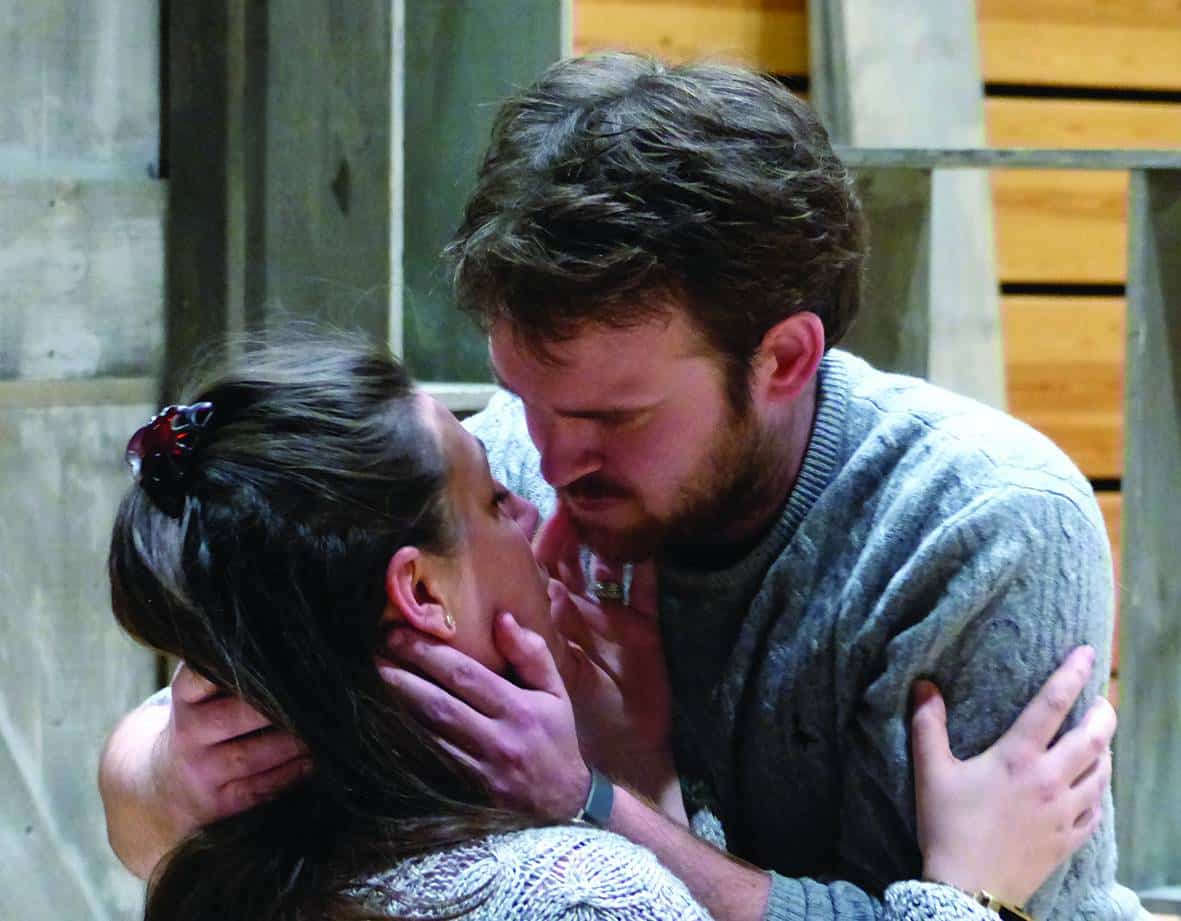HEARING David James talk about the New Sussex Opera’s latest production, A Village Romeo and Juliet, it’s clear that it varies significantly from Shakespeare’s  play of the same name. The operatic society’s General Director says it has all the hallmarks of the Bard’s original story of feuding families and doomed love, but the characters and setting are different as is the overall tone, which veers to the slightly sinister side thanks to the central supernatural character of The Dark Fiddler.
This relatively obscure play is the creation of 19th- century English composer Frederick Delius and the plot centres around Sali and Vrenchen, children of two rival farmers Manz and Marti, respectively, who have battled over a piece of overgrown land that has divided their farms for years.
Like Shakespeare’s tale, the two main characters meet relatively young and form a firm friendship. Unlike the original, though, there is another key character, who turns out to be the catalyst for everything that happens to Sali and Vrenchen.
“The Dark Fiddler is the rightful owner of the disputed land, but he cannot exert control over it because he is illegitimate and thus without legal rights,” explains David.
“One day, Sali and Vrenchen meet the Dark Fiddler, who tells them he knows that each farmer is surreptitiously taking an extra furrow out of his land. ‘When it is all ploughed and no longer a haunt of birds and animals, then beware,’ he warns.”
This macabre caution is the starting point for all the dramatic action which unfolds.
What does David think audiences will enjoy most about their production of A Village Romeo and Juliet?
“It’s a different twist on the familiar story, loosely based on Shakespeare and set to the ravishing music of Delius,” he says.
Music rehearsals for the chorus element started last December, while the principal soloists began rehearsing at Glyndebourne three weeks ago. “Getting used to the ingenious, multi-faceted set has been quite a challenge,” reveals David. “Once you see the production you’ll know what this means!”
The New Sussex Opera [NSO] formed in 1978 and are based in Lewes. Their previous productions have included Kurt Weill’s Lost in the Stars, Tchaikovsky’s The Enchantress and Offenbach’s The Rhine Fairies.
“We were founded by a group of local opera lovers and our aim is to present an interesting range of opera, usually the lesser-known works,” says David.
“We want to produce high-quality performances and provide valuable opportunities for professional, amateur, local and young singers, players and for those in production.”
David adds that they also have another goal, and that is to ‘attract a new audience to live opera and to develop and sustain interest in the art form’. The NSO also get involved in education through workshops for schools.
So what attracted them to this particular piece? David says the NSO chose it because ‘it’s in English, not in the common repertoire, and has a strong choral element’.
He states that the NSO’s musical conductor, Lee Reynolds, has described the rich sound composer Delius created for A Village Romeo and Juliet as being ‘as decadent as slipping into a warm bath’.
The NSO put on one major production in the local area each year, with an in-house fundraising one on a ‘less ambitious’ scale happening in between.
When I ask David if they’re keen on welcoming new members, he swiftly replies: “Yes of course! Either to sing or to share in the vast variety of tasks involved in the staging of an opera. Love of opera and enthusiasm are a good start!”
A Village Romeo and Juliet plays at the EM Forster Theatre, Tonbridge on March 26 at 4pm, and The Stag, Sevenoaks on March 31 at 7.30pm. For prices and full booking information, visit www.newsussexopera.org








